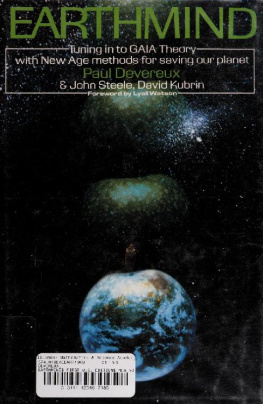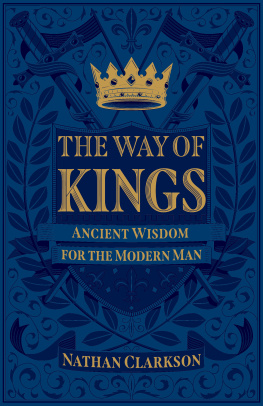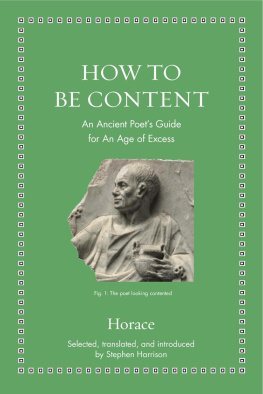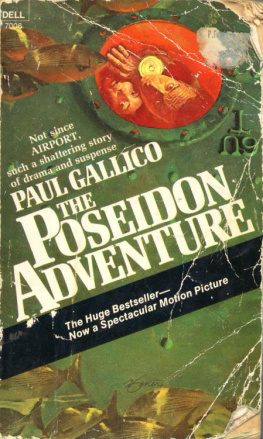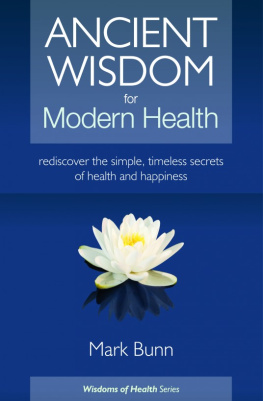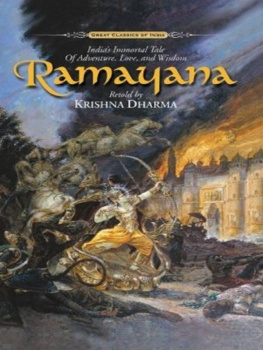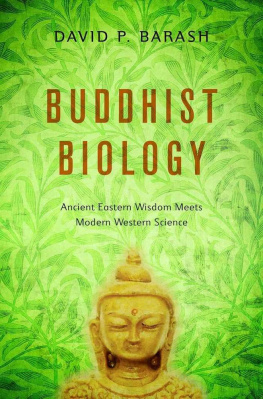Paul Devereux - Earthmind: A Modern Adventure in Ancient Wisdom
Here you can read online Paul Devereux - Earthmind: A Modern Adventure in Ancient Wisdom full text of the book (entire story) in english for free. Download pdf and epub, get meaning, cover and reviews about this ebook. City: New York, year: 1989, publisher: Harper & Row, genre: Religion. Description of the work, (preface) as well as reviews are available. Best literature library LitArk.com created for fans of good reading and offers a wide selection of genres:
Romance novel
Science fiction
Adventure
Detective
Science
History
Home and family
Prose
Art
Politics
Computer
Non-fiction
Religion
Business
Children
Humor
Choose a favorite category and find really read worthwhile books. Enjoy immersion in the world of imagination, feel the emotions of the characters or learn something new for yourself, make an fascinating discovery.
- Book:Earthmind: A Modern Adventure in Ancient Wisdom
- Author:
- Publisher:Harper & Row
- Genre:
- Year:1989
- City:New York
- Rating:4 / 5
- Favourites:Add to favourites
- Your mark:
- 80
- 1
- 2
- 3
- 4
- 5
Earthmind: A Modern Adventure in Ancient Wisdom: summary, description and annotation
We offer to read an annotation, description, summary or preface (depends on what the author of the book "Earthmind: A Modern Adventure in Ancient Wisdom" wrote himself). If you haven't found the necessary information about the book — write in the comments, we will try to find it.
Earthmind: A Modern Adventure in Ancient Wisdom — read online for free the complete book (whole text) full work
Below is the text of the book, divided by pages. System saving the place of the last page read, allows you to conveniently read the book "Earthmind: A Modern Adventure in Ancient Wisdom" online for free, without having to search again every time where you left off. Put a bookmark, and you can go to the page where you finished reading at any time.
Font size:
Interval:
Bookmark:


Published by Harper & Row Publishers Inc.
Copyright Roxby Productions Ltd. 1989
Text Copyright 1989 Paul Devereux
Chapter 1 Copyright 1989 J. Steele
Chapter 2 Copyright 1989 D. Kubrin
All rights reserved. No part of this book may be used or reproduced in any manner whatsoever without written permission except in the case of brief quotation embodied in critical articles and reviews. For information address Harper & Row Publishers Inc., 10 East 53rd Street, New York, NY 10022. Published simultaneously in Canada by Fitzhenry & Whiteside Limited, Toronto.
First US Edition
Created by Roxby Productions Limited
a division of Roxby Press Hmited
126 Victoria Rise London SW4 ONW
Editor: Gilly Abrahams
Design: Eric Drewery
Typesetting: Elite Typesetting Techniques, Southampton
Printed and bound in Yugoslavia
ISBN 0-06-015977-4
Everything changed in 1969.
That was the year in which, like a monkey in a mirror, we saw ourselves for the first time in those glorious photographs of the Whole Earth. We knew the world was round, of course, but seeing for ourselves was somehow different and once we did, something astonishing happened. Something synaptic, that made us aware of our planet in a new and special way.
That was the year in which James Lovelock gave this awareness a focus and a name, drawing attention to Gaia, calling her the largest living creature in the solar system, making it necessary and possible to think about the world in more creative ways.
The Gaian point of view is turning out to be one of the most seminal of the century, forcing cosmologists, biologists, geologists and geographers to deal with the world in holistic terms, not in isolation, but as part of a complex galactic ecology.
We are, as a result, beginning to hear more about the planets physiology, her nutrition and digestion. There are studies in progress on geometabolism and telluric healing. And, more cautiously, on the growth and maturation of a global nervous system. It is in this context that I find EARTHMIND so timely.
Paul Devereux and John Steele, as founder members of the Dragon Project, are well-placed to put the possibility of a planetary mind into scientific perspective. And they have, with David Kubrins help on the historic side, put the whole question of a living, thinking world into its proper cultural niche. I welcome this collaboration as a bold step in the right direction toward the creation and recognition of a world that is not only conscious, but also sentient and self-aware.
Lyall Watson
It is a supreme irony that we had to leave our planet before we couldreally see it. When the astronauts showed us what our world lookedlike from space, it was as if a mirror had been held up for us to see ourreflection. The image of Mother Earth, beautiful, fragile, dancingthrough space, was shuttled through the electronic communicationssystems around the globe and lodged indelibly in our minds.
This event was like a signal telling us that a particular time hadarrived: the final moments of deciding how we are to regard our worldand our relationship with it. The contemporary belief that the Earth is adead structure that can be endlessly exploited simply did not matchwhat we felt when we saw that media vision of the blue and whiteplanet floating in the void. It was as if life recognized life.
It is, perhaps, a paradox that it was modern technology, and spacetechnology in particular, that allowed this view of Earth to be obtainedand to be transmitted to the minds of billions of people. But thetriumph of that technology was not the putting of a machine into orbit,or men on the moon it was the emotional and philosophical joltmade possible on a mass scale down on Earth. It was a crucial momentin planetary history that had to come; the technology was necessary toforce us to look anew at our home.
The ghostly image of the Earth as seen from space has become anestablished media icon; we see it virtually every day on television, innewspapers, books, magazines and advertisements. This subliminalawareness of our planet has initiated an acceleration in ecologicalconcern, in Green consciousness. A process has been catalyzed. As aresult, two philosophies are now locked in a struggle. There is theestablished, so-called economic worldview that says we have toexploit the planet for the sake of progress, and that it is too expensiveto change our procedures for doing so in any fundamental way. The opposing, emergent view says that it is too expensive not to change ourways, because the fine, intricately linked fabric of life on our planet is inobvious danger; a potential disaster is being sensed.
This emergent philosophy is now rapidly developing in stature, andthere is a growing confidence that the Green view might prevail againstits stubborn, deeply entrenched adversary. But the changes called forhave not yet been completely perceived. For a whole cultural attitudeto alter, we have to change more than our industrial processes wehave to change our minds. It will not be enough simply to try to alterour behaviour on a planet that is still conceptualized in the former way.If we are to survive as a species, we have to literally rearrange ourworldview.
Many people in the Green and New Age movements realize that theemergent philosphy is at heart a very ancient wisdom which states thatthe Earth is in some sense alive. Most cultures prior to our own heldthis view. It seems likely that we will somehow have to recover thatbelief, so that all our future actions can be governed by it.
The phrase the living Earth means different things to differentpeople. It is used somewhat glibly by various groups, virtually as aslogan, without the implications of the idea really being explored.Some New Age people use the idea as an emotional bath, relating to itsimply on a frisson level. Others interpret the concept of the Earthbeing alive in the sense of the planet being the homebase of a complexskein of living things. Yet others use such phrases to denote the theorythat the Earth regulates its processes climate, interaction betweenliving things and their habitat, and so on as if it were a living organism.James Lovelock, the scientist whose Gaia hypothesis is discussed inthis book, is the doyen of this group. He feels that biology and geologycannot really be separated, that life has interacted with its habitat in asingle, tightly coupled process. Although this falls short of any claimof the Earth being literally alive, Lovelock uses terms such asself-regulation when referring to planetary processes but how can aplanet self regulate, if it does not possess some form of awareness? Thequestion certainly requires serious consideration, because a processof regulation, of checks and balances, can only be achieved by use of areference base, a memory of some kind. This cannot be effectedwithout awareness consciousness being involved at some point inthe process. It might be argued that non-living, non-sentient things such as computers contain memories, but the analogy does not hold.The mechanism is not the memory. However sophisticated thecomputer, its processes are initiated by human intelligence.
The idea of a living Earth is total anathema to conventional thinkingwithin contemporary society, and even makes some Greens feelawkward. But despite the risks entailed, the purpose of this book is topose the direct question:Is the Earth alive? Any consideration of sucha profound and elusive aspect of the planet can only be an adventure ofthe mind at this stage, and the reader is asked to come along in thatspirit. We must constantly bear in mind, however, that the idea of aliving Earth would have been a perfectly normal, even self-evident,concept to most people living on our planet even a few hundred yearsago. It is our present culture which is being eccentric in regarding theidea as a bizarre fantasy. The first part of this book, therefore, is aglance back at how the Earth was viewed in former ages and intraditional societies, and how we have virtually come to forget thatview.
Next pageFont size:
Interval:
Bookmark:
Similar books «Earthmind: A Modern Adventure in Ancient Wisdom»
Look at similar books to Earthmind: A Modern Adventure in Ancient Wisdom. We have selected literature similar in name and meaning in the hope of providing readers with more options to find new, interesting, not yet read works.
Discussion, reviews of the book Earthmind: A Modern Adventure in Ancient Wisdom and just readers' own opinions. Leave your comments, write what you think about the work, its meaning or the main characters. Specify what exactly you liked and what you didn't like, and why you think so.

